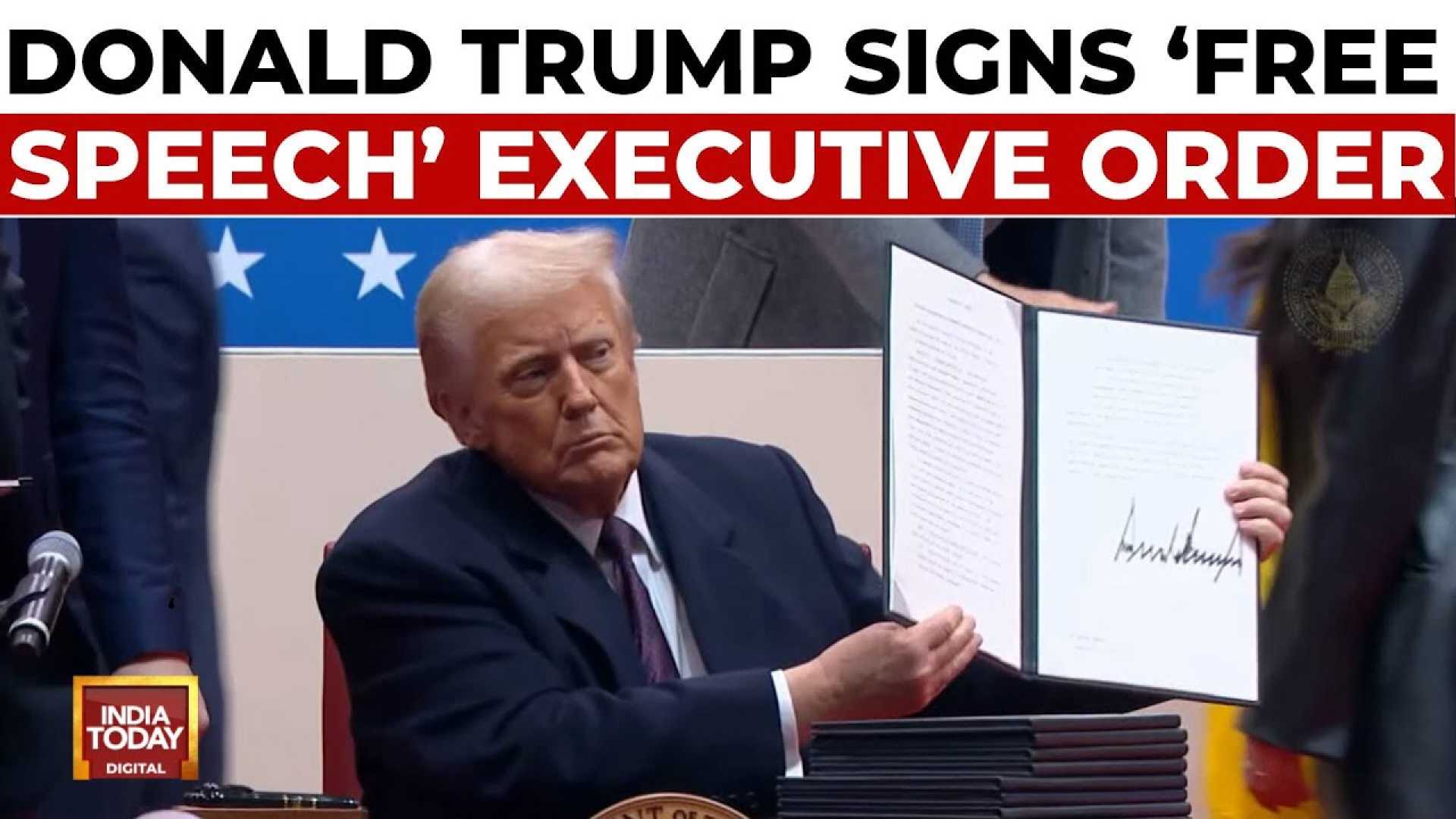Politics
Trump Signs Executive Order to Restore Free Speech, Critics Cite Hypocrisy

WASHINGTON, Jan. 20, 2025 (Reuters) – U.S. President Donald Trump signed an executive order on Monday aimed at restoring freedom of speech and ending government censorship, a move that has drawn sharp criticism from opponents who highlight his history of targeting journalists and political adversaries.
The order, signed on Trump’s first day in office, asserts that the previous administration under President Joe Biden suppressed free speech on online platforms by pressuring social media companies to moderate or deplatform content deemed unfavorable. Trump and his Republican allies have accused the Biden administration of overstepping constitutional boundaries, particularly in efforts to combat misinformation about vaccines and elections.
“Government censorship of speech is intolerable in a free society,” the executive order states. It outlines a policy to secure Americans’ right to constitutionally protected speech, prohibit federal employees from abridging free speech, and investigate past government actions inconsistent with these principles.
However, critics argue that Trump’s own record undermines the order’s credibility. During his presidency, Trump frequently labeled journalists as “the enemy of the people” and pursued legal action against media outlets, including CNN, ABC News, and the Des Moines Register. In 2022, he unsuccessfully sued former presidential rival Hillary Clinton over her comments about his campaign’s alleged ties to Russia.
David Kaye, a professor at the University of California, Irvine, and former United Nations Special Rapporteur on free speech, called the order “deeply cynical.” He noted that the federal government is already barred from interfering with First Amendment rights, making the order largely symbolic. “You cannot on the one hand say, ‘The media is the enemy of the people,’ and at the same time say, ‘It’s the policy of the United States to secure the right of the American people to engage in constitutionally protected speech,'” Kaye said. “Those two things don’t fit together.”
The order also mandates the Attorney General to investigate federal actions over the past four years that may have violated free speech protections and recommend corrective measures. Despite its sweeping language, the order explicitly states that it does not create any new legal rights or benefits enforceable against the government.
Trump’s relationship with social media has been contentious. Following the Jan. 6, 2021, Capitol attack, he was banned from major platforms for inciting violence. His return to office has reignited debates about the balance between free speech and the regulation of harmful content.
The White House defended the order, stating, “Over the last four years, the previous administration trampled free speech rights by censoring Americans’ speech on online platforms, often by exerting substantial coercive pressure on third parties, such as social media companies, to moderate, de-platform, or otherwise suppress speech that the Federal Government did not approve.”
As the order takes effect, its practical impact remains uncertain, with legal experts questioning its necessity and critics decrying it as a political maneuver.












